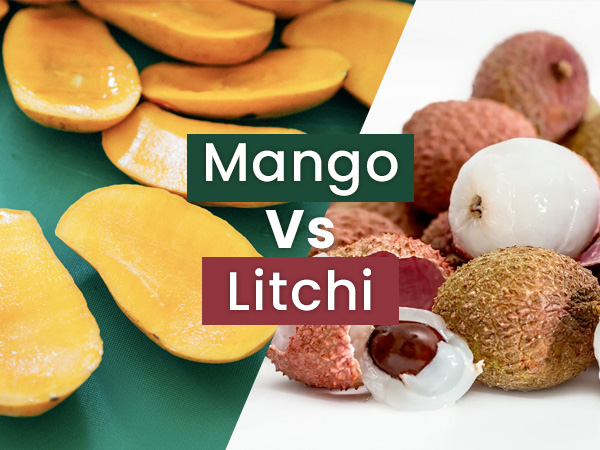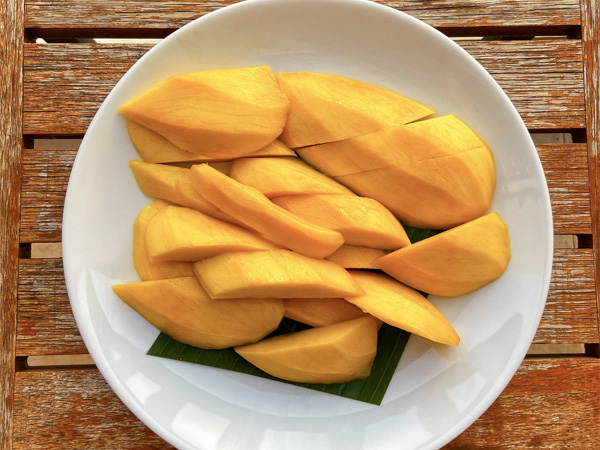Just In
- 2 hrs ago

- 6 hrs ago

- 10 hrs ago

- 10 hrs ago

Don't Miss
- Sports
 Why camera zoomed in on IPL 2024 coin toss after Sam Curran flipped it in front of Hardik Pandya in Mullanpur?
Why camera zoomed in on IPL 2024 coin toss after Sam Curran flipped it in front of Hardik Pandya in Mullanpur? - Finance
 1:2 Bonus, Rs 401/Sh Dividend; Tata's NBFC Stock Falls On Big Update Related To Dividend Recommendations
1:2 Bonus, Rs 401/Sh Dividend; Tata's NBFC Stock Falls On Big Update Related To Dividend Recommendations - Movies
 Pranali Rathod New Show: Yeh Rishta Kya Kehlata Hai Star Signs Next Project Of Jhanak Makers? DEETS
Pranali Rathod New Show: Yeh Rishta Kya Kehlata Hai Star Signs Next Project Of Jhanak Makers? DEETS - News
 Lok Sabha Election 2024: Polling Underway For One LS Constituency And 32 Assembly Seats In Sikkim
Lok Sabha Election 2024: Polling Underway For One LS Constituency And 32 Assembly Seats In Sikkim - Automobiles
 India's Elections Trigger Airfare Surge in Tamil Nadu
India's Elections Trigger Airfare Surge in Tamil Nadu - Technology
 TSMC's Global Expansion Could Drive Up Chip Costs, Making Tech More Expensive
TSMC's Global Expansion Could Drive Up Chip Costs, Making Tech More Expensive - Education
 Karnataka SSLC Result 2024 Soon, Know How to Check Through Website, SMS and Digilocker
Karnataka SSLC Result 2024 Soon, Know How to Check Through Website, SMS and Digilocker - Travel
Telangana's Waterfall: A Serene Escape Into Nature's Marvels
Mango Vs Litchi: Who Is The Winner Of The Best Summer Fruit?
Summer is the season of mango and litchi. While mango is still holding its crown "king of fruits" due to its satisfying yellow pulp, litchi is putting everything in the competition with its juicy, sweet, tangy and aromatic pulp.

If we look into the nutritional profile of both mango and litchi, they are loaded with multiple vital nutrients that may help provide a range of health benefits such as preventing the sunstroke, keeping the body hydrated, improving digestion, maintaining skin health and other problems that arise mainly during the summer.
In this article, we will compare the nutritional profile of both the fruits and their amazing health benefits for summer, so that you can easily find out the winner of the best summer fruit. Take a look.

Difference Between Nutritional Profile Of Mango And Litchi
Nutritional profile of mango (100 g) | Nutritional profile of litchi (100 g) | |
| Water | 83.5 g | 81.8 g |
| Energy | 250 kJ | 276 kJ |
| Protein | 0.82 g | 0.83 g |
| Fibre | 1.6 g | 1.3 g |
| Calcium | 11 mg | 5 mg |
| Iron | 0.16 mg | 0.31 mg |
| Magnesium | 10 mg | 10 mg |
| Phosphorus | 14 mg | 31 mg |
| Potassium | 168 mg | 171 mg |
| Sodium | 1 mg | 1 mg |
| Zinc | 0.09 mg | 0.07 mg |
| Copper | 0.111 mg | 0.148 mg |
| Vitamin C | 36.4 mg | 71.5 mg |
| Folate | 43 mcg | 14 mcg |
| Choline | 7.6 mg | 7.1 mg |
| Vitamin A | 54 mcg | 0 mcg |
| Vitamin E | 0.9 mg | 0.07 mg |
| Vitamin K | 4.2 mcg | 0.4 mcg |
Source: USDA


Health Benefits Of Mango And Litchi For Summer
1. Hydrates the body
Mango contains 83.5 g of water per 100 g. [1] Consuming mango juice, especially raw mango juice, may help treat summer problems like sunstroke due to its large water content.
Litchi contains 81.8 g of water per 100 g. [2] The fruit contains just a little less proportion of water compared to mango. However, it may also help hydrate the body for longer during the summer.
2. Provides energy
100 g of mango provides 250 kJ of energy. It provides less energy compared to litchi. However, mango juice is also considered a vital source of energy during the summer.
100 g of litchi provides 276 kJ of energy. Litchi provides more energy compared to mango. Drinking litchi juice or consuming the fruit directly may help provide instant energy and prevent problems like dizziness and fatigue.

3. Lowers body temperature
Sunstroke is a primary risk factor in the summer, a condition in which the body temperature may reach above 40-degree-Celcius. The antipyretic effects of mango may help reduce the body temperature and prevent from its complications such as seizures. [3]
Litchi may also help lower the body temperature due to its potent anti-inflammatory activities. Its consumption provides a soothing effect to the body and thus, cools it. [4]
Note: Raw mangoes have an antipyretic effect instead of ripe ones, while ripe litchis are good for cooling the body, instead of raw ones.

4. Balances body electrolytes
The vital minerals that help maintain the body's electrolytes are sodium, potassium and calcium. Mango contains 1 mg of sodium, 168 mg of potassium and 11 mg of calcium while litchi contains 1 mg of sodium, 171 mg of potassium and 5 mg of calcium.
The electrolytes in litchi are slightly less than mangoes. However, it also helps balance the body electrolytes to a large extent, but not as mango does.
5. Lowers heart rate
Excessive heat can cause the heart rate to increase during the summer season. According to a study, minerals like sodium, potassium, calcium and magnesium play an important role in the normal regulation of blood pressure. [5]
As per the aforementioned data, both mango and litchi have equal amounts of sodium and magnesium, but mango has slightly more amount of potassium and calcium, compared to litchi.

6. Treats summer dry skin
Vitamin C is a strong antioxidant that may help protect the skin from sun damage and promote collagen production. As excessive heat of the summer can cause skin problems like dry skin, tan skin, acne, burned skin and skin infections, this antioxidant may help keep the skin hydrated and healthy during the season. [6]
Litchi has 71.5 mg of vitamin C while mango has 36.4 mg. The amount in prior is much higher compared to the latter.

Who Is The Winner?
Mango contains more water, dietary fibre, calcium, zinc, folate, choline, and vitamin A, E and K. Litchi contains more energy, protein, iron, phosphorus, potassium, copper and vitamin C.
On the other hand, the content of magnesium and sodium is the same in both the fruits, while there's just a slight difference in the content of water, protein, fibre, potassium, zinc, choline and vitamin E.
Additionally, calcium, folate, vitamin A and vitamin K in mango are in abundance, while in litchi iron, phosphorus and vitamin C are more.

To Conclude
Both the fruits, mango and litchi are healthy and nutritious in some ways, the reason why they both are considered prominent summer fruits. However, it's up to you to decide and pick the right fruit according to the benefits and taste you prefer.
-
 healthUnveil the Amazing Health Perks of Eating Mangoes!
healthUnveil the Amazing Health Perks of Eating Mangoes! -
 beauty5 Refreshing Mango Face Pack Recipes To Try Today
beauty5 Refreshing Mango Face Pack Recipes To Try Today -
 insync16th NMC India Mango Festival To Host Gadar 2 Actress Ameesha Patel In Delhi
insync16th NMC India Mango Festival To Host Gadar 2 Actress Ameesha Patel In Delhi -
 healthHealth Benefits Of Noorjahan Mango: This MP Fruit Cost You Upto Rs 1000 Per Piece
healthHealth Benefits Of Noorjahan Mango: This MP Fruit Cost You Upto Rs 1000 Per Piece -
 insyncMiyazaki: Guess The Price Of World's Costliest Mango, It Is Mind Boggling!
insyncMiyazaki: Guess The Price Of World's Costliest Mango, It Is Mind Boggling! -
 pregnancy parentingCan Pregnant Woman Eat Mangoes? How Many A Day Is Healthy?
pregnancy parentingCan Pregnant Woman Eat Mangoes? How Many A Day Is Healthy? -
 healthDiabetes Diet: Can Diabetics Eat Mango? What About Raw Mangoes?
healthDiabetes Diet: Can Diabetics Eat Mango? What About Raw Mangoes? -
 hair careMango For Hair: Is It Good? 2 Quick And Easy DIY Hair Packs
hair careMango For Hair: Is It Good? 2 Quick And Easy DIY Hair Packs -
 nutritionFrom Treating Ulcers To Managing Diabetes, Some Amazing Health Benefits Of Mango Flowers
nutritionFrom Treating Ulcers To Managing Diabetes, Some Amazing Health Benefits Of Mango Flowers -
 recipesMango Dessert Recipe For Ramadan: How To Prepare Mango Panna Cotta
recipesMango Dessert Recipe For Ramadan: How To Prepare Mango Panna Cotta -
 recipesMango Special Recipes: How To Prepare Summer-Friendly And Tasty Mango Chickpea Salad
recipesMango Special Recipes: How To Prepare Summer-Friendly And Tasty Mango Chickpea Salad -
 nutritionDo Mango Peels Have Health Benefits?
nutritionDo Mango Peels Have Health Benefits?


 Click it and Unblock the Notifications
Click it and Unblock the Notifications



